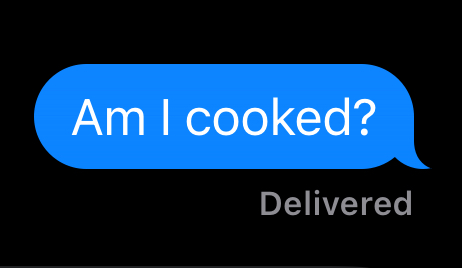Gen Z includes some of the greatest inventors out there. They shape their own dialect through generational colloquialisms that define their age group – from being down to go to a party or cooking on a test, these Gen-Z-coded experiences are shared using words and phrases that linguistically separate this generation from the rest.
Slang itself has no true definition assigned to it by linguists, but words are generally thought of as slang if they are used informally, vulgarly, or in some sort of taboo manner. The word “slang” carries the connotation that it is not used by professionals, but rather, “thieves, vagabonds, etc,” as Dictionary.com puts it. Implying that users of slang are “lower” in some way than users of standard English creates an aura around it that is off-putting to adults, which only furthers the generational divide.
Nuance is added to the slang conversation when considering words and phrases that are still thought of as “slang” or “new” but have more or less been naturalized into standard American English. Things like “ghosted” or “left on read” are used pretty fluidly by many adults, but are still omitted from dictionaries. Language, in this sense, is never truly “standard,” but just grows branches over time.
Thinking of slang as more of a subsect of the English language, however, showcases the inventive nature of Generation Z. New words pop up every few weeks, some sticking around for longer than others. They rarely invent the words, but alter or sometimes create new meanings. When people a decade ago dressed well, nobody said that they “ate,” but Gen Z invented a new meaning of the word. Another good example are the new definitions of “cook/cooking/cooked.” The most interesting facet of the word “cook” is that when someone is “cooking” or they have “cooked,” they did or are doing a great job on something, but if someone is “cooked” (adjective, not a past-tense verb), they are struggling at whatever they are doing. It’s hard to tell what, if anything, this says about Gen Z, but it shows at least some ability to communicate on their own level, without the conventions of regular English. Rarely do people think of a still maturing generation as inventors, but in their own way, they are. New expressions and words are shared in schools and online communities extremely quickly, which if anything makes Gen Z quite a socially homogenous group.
One crucial aspect of Gen Z slang is that it is used to associate one’s vocabulary with their unique experiences growing up through the 2010’s and 2020’s. No other generation relates, in a storytelling way at least, to having a goated teacher, cooking on a presentation, or crashing out. Yes, all living generations have at some point or another been treated to a good teacher, done well on a project, and gotten angry to the point of quitting, but the idea is that they shared those experiences as such. Gen Z is able to define these experiences in their own way, using the altered meanings of existing words or making up their own to relay the experience to one another, which oftentimes has the effect of making it more relatable.
Slang comes in different flavors: it can be used metaphorically or idiomatically, but most importantly as a generation-wide inside joke. Tell your parents that you got gassed up by your friends after wearing a new outfit to school. They are probably clueless as to what that means, but peers are automatically in on the joke that your friends did not pour gasoline on you, but just gave you compliments.
Ultimately, as confused as parents and teachers may be as to what their students are saying, slang is a premier unifying factor of the generation. In a world with plenty of division, Gen Zers associate together around their made-up words that seem so temporary and pointless, but really define the generation and the times they are growing up in.




